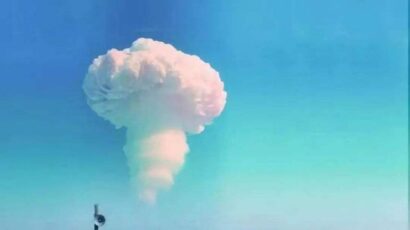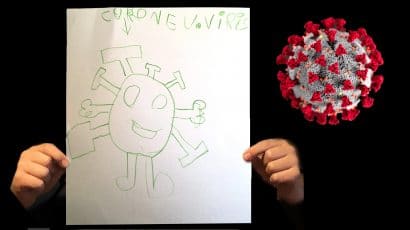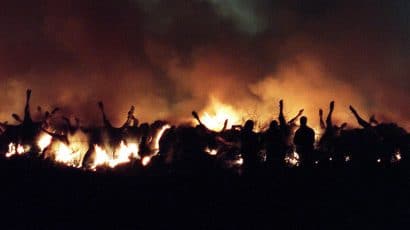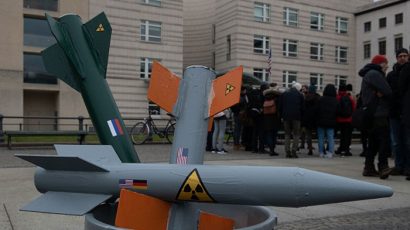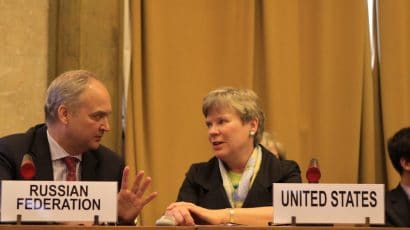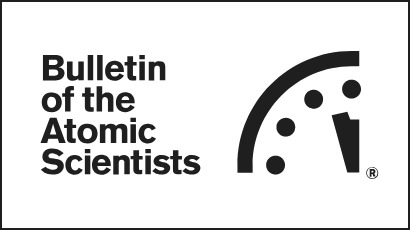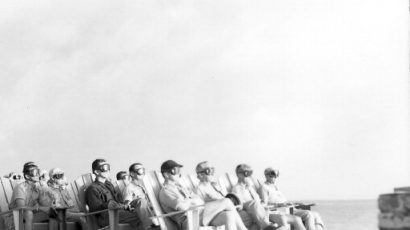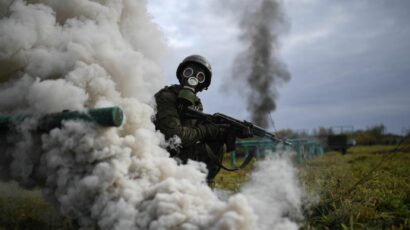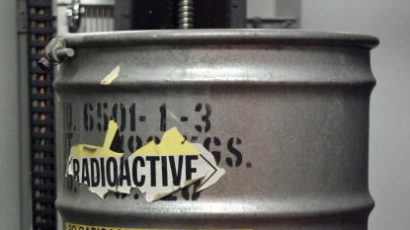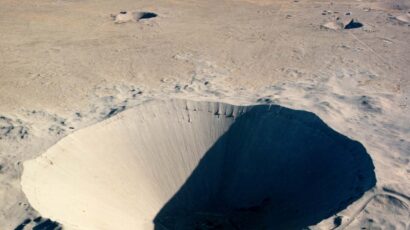Search results for
In less than seven years, Chinese physicists went from launching a new hydrogen bomb research program to desperately searching foreign newspapers for any details about the H-bomb to successfully detonating a full-yield 3.3 megaton hydrogen bomb. In this feature article, a Chinese scholar tells the untold story of China’s hydrogen bomb development.
Old hatreds fuel online misinformation about COVID-19 in South Asia
From old videos repurposed to make it seem Muslims were spreading COVID-19 in India to the assertions of Pakistani clerics that Muslims were immune to coronavirus infection, coronavirus misinformation was easily incorporated into old animosities in South Asia.
Kids are drawing pictures of the new coronavirus. That’s a good thing.
One concrete reflection of how children are experiencing the COVID-19 pandemic can be seen in something they do all the time: draw pictures.
Hot zone in the heartland?
The new coronavirus has plunged us into an infectious-disease crisis. As we respond, the years-long debate over N.B.A.F. raises worrying questions about American biodefense policy. Will more bio-labs help us fight outbreaks? Or are we building too many labs in too many places?
An ambitious arms control agenda requires a new organization equal to the task
An exceedingly challenging agenda of urgent, important, and diverse arms control issues awaits the incoming Biden administration. To address it, the administration should consider the creation of a new agency to focus on cooperative threat reduction.
How Biden can advance nuclear arms control and stability with Russia and China
The Biden administration can take two pragmatic steps to enhance US and allied security through arms control policy. First, Biden should secure a diplomatic agreement with Russia to extend New START. And the next administration needs to begin strategic dialogues with Russia and China focused on developing practical measures to preserve stable deterrence relationships.
Why young people think nuclear weapons are history
Twenty-somethings have no context for fearing nuclear proliferation, but there are other ways to create awareness.
What you should know about North Korea and their nuclear weapons threats
Teen Vogue may not be the first place one ordinarily thinks of when it comes to articles on topics like North Korea and its nuclear weapons. That is changing.
The Nuclear Security Summit: Wins, losses, and draws
The just-concluded fourth and final Nuclear Security Summit saw some serious progress, but also some missed opportunities.
Playing at nuclear war
Just in time for holiday shopping comes nuclear virtual reality, in the form of video games, documentaries, emergency simulations, and so-called disaster tourism.
Introducing the Nuclear Fuel Cycle Cost Calculator
Over the last two years, the Bulletin of the Atomic Scientists and the University of Chicago have created an online tool that will help countries understand the true cost of choosing the reprocessing route—and perhaps help limit the spread of nuclear reprocessing. Here's how.
Deterrence, without nuclear winter
Small nuclear arsenals or non-nuclear weapons could allow countries to deter adversaries without risking total global catastrophe
How to avoid nuclear war with China
There is a significant probability a war between China and the United States could escalate to nuclear threats. It is urgent that the two countries launch talks on nuclear arms control, both to prevent a nuclear arms race and to reassure each other that both want to avoid a nuclear conflict.
Putin’s psychology and nuclear weapons: the fundamentalist mindset
Vladimir Putin’s recent threats to use nuclear weapons are grounded in a psychology that is paranoid and also millennialist—focused on an imagined future that will come only after the “good” have vanquished the evil “others.” In Putin’s worldview, the profound humiliation that he believes the West has inflicted on his sense of self, both an individual and as a member of the Russian people, is an intolerable injury that must be avenged.
Keeping tabs on nuclear security commitments
How can gift-basket diplomacy be preserved beyond the 2016 Nuclear Security Summit?
A primer: Military nuclear wastes in the United States
The radioactive legacy of the US nuclear weapons program has spawned the most costly, complex, and risky environmental cleanup effort ever undertaken, with a long-term liability estimate ranging up to $1 trillion.
Environmental impacts of underground nuclear weapons testing
Between 1945 and 1996, more than 2,000 nuclear tests were conducted, three-quarters of which were underground. What is their environmental legacy?
